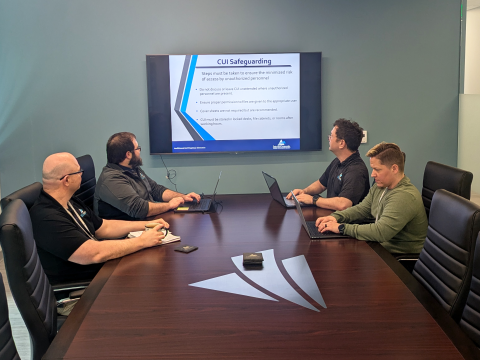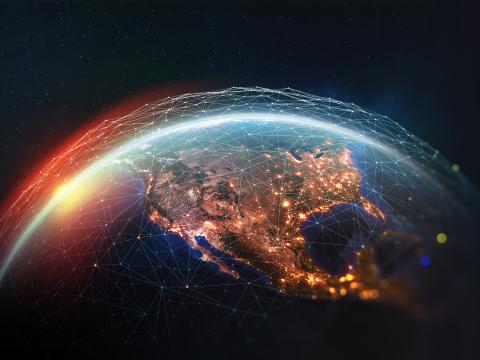On Point: Q&A With Juliana Vida
Q&A with Juliana Vida, chief technical advisor, public sector at Splunk Inc., and a former Navy deputy chief information officer.
Juliana Vida, chief technical advisor, public sector at Splunk Inc., is a former Navy deputy chief information officer.
How has data become a strategic asset to government organizations?
In today’s world, data is just as critical to government operations as electricity was at the turn of the century. It’s revolutionary. It informs how the government can best communicate amongst itself and with citizens. It predicts how the uniformed services can most efficiently and effectively operate. And it advises us on how to best interact with the world and our future partners.
In today’s world, data is not just an asset—it’s currency. And whoever can leverage data best will win. From a governmental standpoint, understanding data is a fundamental necessity.
Is the government treating data with as much importance as it should, particularly in terms of security?
We have made great strides in the way data is managed and handled at the federal level. This past year alone brought with it many trials and tribulations that tested the resiliency of our tools and solutions, exposing and exploiting vulnerabilities across our ecosystems and supply chains. But with our most valuable tools being put to the test, we’ve been able to better recognize the value of these digital solutions. We’ve been able to contextualize and quantify how they make our lives safer, enabling the federal government to continue to improve upon how it manages and protects data.
What should the government do to fully exploit data in a modern sense instead of in a legacy model?
The best way the government can take full advantage of the data at its fingertips is through cross-agency collaboration. One huge benefit of leveraging data to inform decisions and take positive action is that it removes the human elements of ego, culture, assumptions and all the other traits that can thwart our best efforts to be objective. Allowing data from any source or format to do most of the analytical work allows the government to focus their attention on high-value activities such as creativity, building trust and applying ethics to decision-making.
How are emerging technologies such as AI and ML altering the way government views and uses data?
Emerging technologies like AI and ML are enabling a new kind of agile workforce in the federal government, empowering technologists to use their skills for the betterment of citizens, our soldiers and society. That’s powerful. Leveraging AI and ML to optimize and enhance the diversity of our federal workforce is an improvement in how the public sector attracts and retains top talent—not to mention the operational benefits of utilizing such technologies for overcoming resource limitations, automating self-reporting for compliance purposes and predicting issues and solutions to ensure mission success.
What do you think is the next great technology trend?
The ethical and responsible use of consumer data. Particularly as emerging technologies such as AI, ML, edge computing and 5G continue to grow, the conversation around data privacy and data usage is not going away anytime soon. This notion of “what do we do with data privacy” will continue to determine the way we approach legislation, enforcement and consumerization. Data is essential for our businesses and the federal ecosystem today. As Americans who value independence and freedom, we’ll need to figure out how to unblur the lines around data privacy responsibly.




Comments